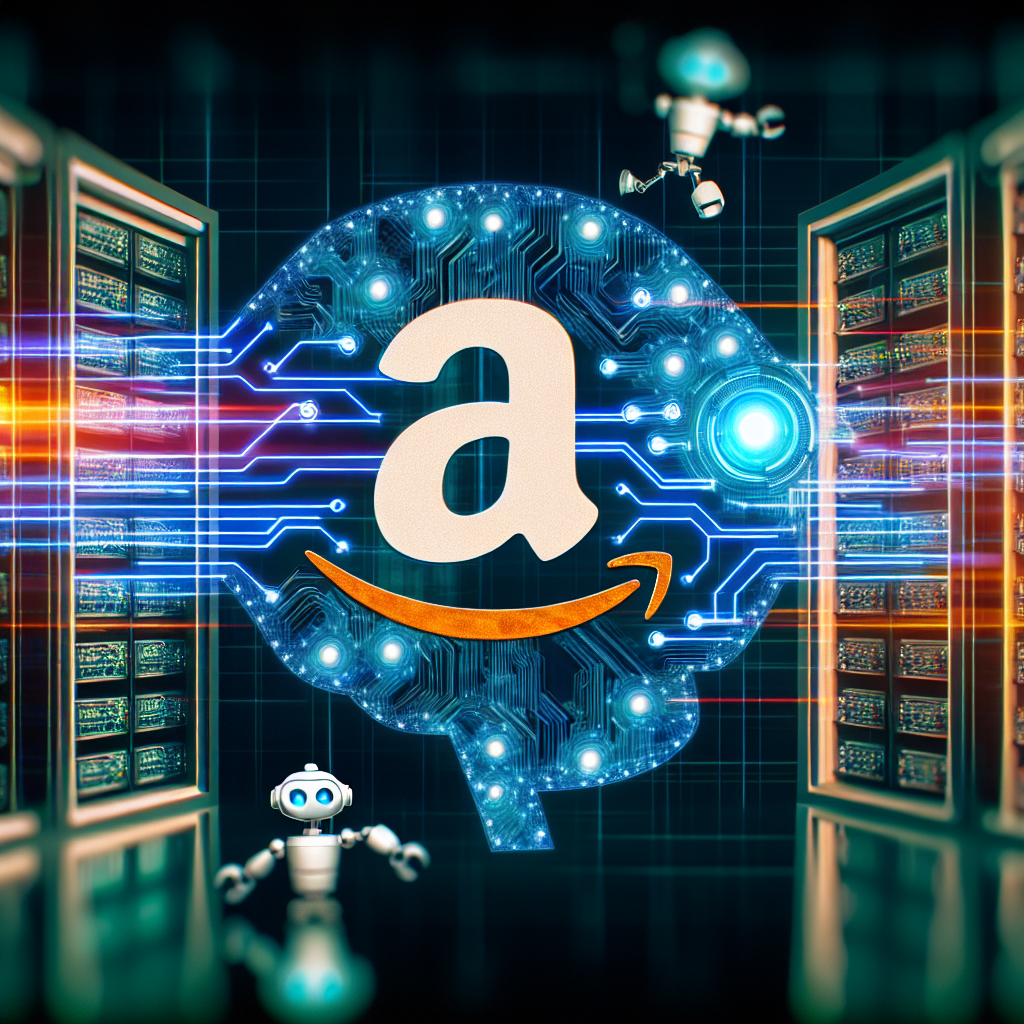Amazon Leverages Retail Success to Fuel AI Innovations
Amazon, a conglomerate known primarily for its e-commerce dominance, is now channeling its vast resources and expertise into the world of Artificial Intelligence (AI). This move is not just about staying competitive but about pioneering future technologies that can reshape industries.
How Amazon’s Retail Success Became the Bedrock
Amazon’s retail arm is a marvel of modern business innovation, starting from its humble beginnings of selling books online. Let’s break down the strengths that have propelled Amazon to leverage AI in new ways:
- Customer Insight: With millions of users globally, Amazon has an unprecedented amount of data to understand customer behavior and preferences.
- Optimized Logistics: Utilizing advanced algorithms, Amazon has set benchmarks in logistics and supply chain management.
- Financial Muscle: With substantial revenues from its retail operations, Amazon has the capital to invest heavily in AI research and development.
Here’s a brief look at the timeline of Amazon’s retail success as a backdrop to understanding its AI initiatives.
A Timeline of Amazon’s Growth
- 1994: Founded by Jeff Bezos as an online bookstore.
- 1997: Went public with an IPO raising $54 million.
- 2005: Launched Amazon Prime, revolutionizing e-commerce subscriptions.
- 2010: Expanded into the cloud with Amazon Web Services (AWS).
- 2021: Became one of the world’s largest retailers with a market cap exceeding $1.6 trillion.
The Shift to AI: Beyond Retail
Amazon’s foray into AI doesn’t just prepare it to continue dominating retail; it aims to redefine several sectors, including healthcare, logistics, and cloud computing.
AI in Amazon Web Services
Amazon Web Services (AWS) is one of the largest cloud service providers globally. AWS has been incorporating AI to help businesses of all sizes:
- Machine Learning: AWS offers services like SageMaker, a fully managed service providing every developer and data scientist with the ability to build, train, and deploy machine learning (ML) models quickly.
- AI Services: These include natural language processing, facial recognition, and forecasting engines that businesses can incorporate into their operations.
AI in Logistics and Delivery
Amazon’s logistics network is a complex web of warehouses, delivery trucks, and advanced software. Here’s how AI integrates:
- Robotics: Amazon uses thousands of robots in its fulfillment centers to pick, pack, and ship items efficiently.
- Route Optimization: Machine learning algorithms help in creating the most efficient delivery routes, saving time and reducing fuel consumption.
- Drone Deliveries: Amazon Prime Air aims to deliver packages weighing up to five pounds in 30 minutes or less using drones, showcasing an innovative use of AI for navigation and object detection.
AI in Customer Experience
Enhancing customer experience has always been Amazon’s hallmark. Through AI, the experience gets even more refined:
- Recommendation Systems: Amazon’s famous recommendation engine uses machine learning to suggest products based on past purchases and browsing history, making shopping highly personalized.
- Alexa: The voice assistant is an AI marvel, understanding and responding to user requests, controlling smart home devices, providing information, and even making purchases possible through voice commands.
Potential Challenges and Ethical Considerations
While Amazon’s AI ambitions are grand, they are not without challenges and ethical dilemmas.
Data Privacy
With great data comes great responsibility. The more data Amazon uses to train its AI, the higher the stakes for data security and user privacy. Stringent data protection measures are essential to safeguard against breaches.
Algorithmic Bias
AI systems can perpetuate and amplify biases found in training data. Amazon must ensure that its AI algorithms are fair, transparent, and inclusive.
Job Displacement
With more automation, there’s a real concern about job displacement. While AI creates new roles, it may also render traditional roles obsolete. Amazon has pledged to retrain and upskill its workforce to mitigate this issue, but the broader societal impact remains a consideration.
Conclusion
Amazon’s strategic pivot towards AI signifies an exciting era of innovation. Building on its retail success, the company is well-positioned to revolutionize several sectors by making AI more accessible and impactful. However, as with any technology, the ride comes with its own set of challenges that need careful navigation.
This insight into Amazon’s AI journey highlights the company’s expansive vision and strategic foresight. For more details, you can refer to the original article on Livemint.
Disclaimer: This is an AI-generated summary of the original article. For more detailed information, please refer to the source.
